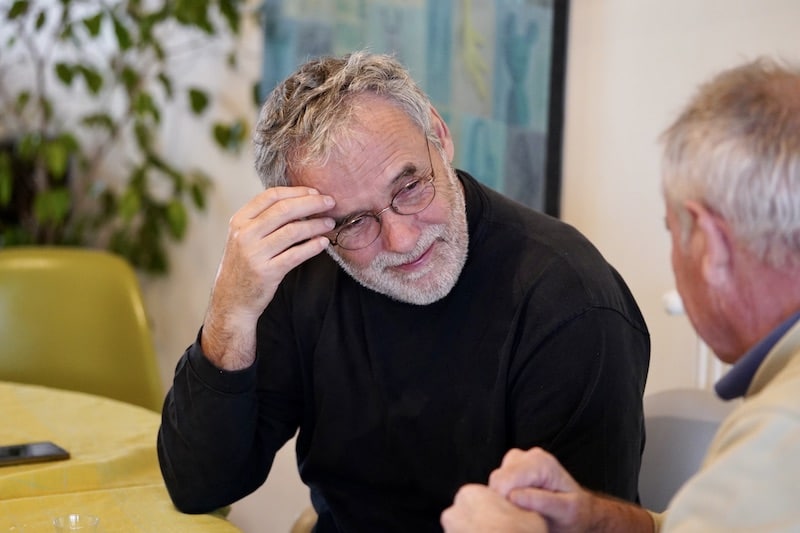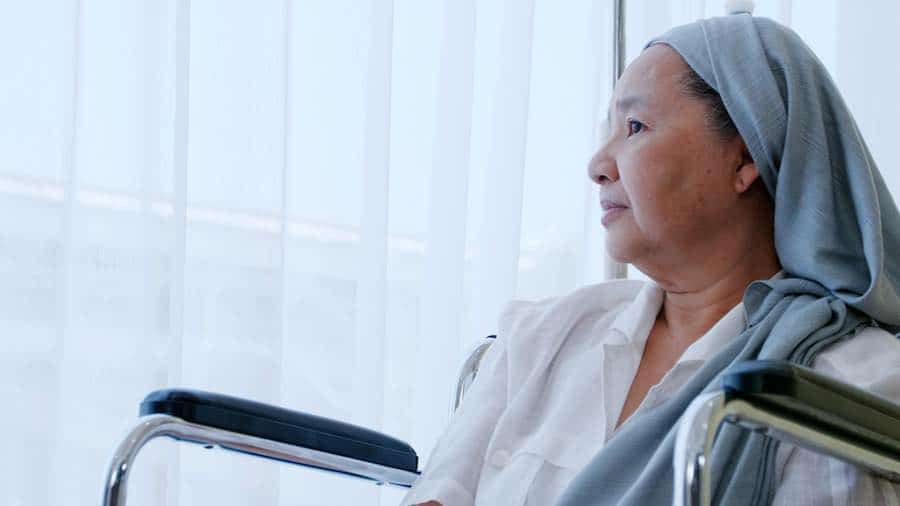Whether or not a patient is religious, spiritual care for hospice patients can inspire hope and help them to feel cared for. Envision Hospice strives to care for the body, mind, and spirit of each and every patient we serve. Spiritual care is a service we offer to help ease the pains and worries of the end-of-life period.
Wondering if spiritual care could help your loved one through this difficult time? Let’s explore what spiritual care might look like in your home and how this service can help spiritual and emotional health. Lastly, we’ll share the benefits of spiritual care that many people do not know about.
What might spiritual care look like in your home?
After speaking to your loved one’s team about exploring spiritual care, a minister from our team will come to visit them at your home. He will come equipped to respect and be in agreement with each individual patient about their spiritual beliefs and be ready to affirm and comfort them through these beliefs. Even non-religious patients find comfort and hope through these visits. It’s worthwhile to explore this service and give it a try, no matter what spiritual beliefs are held by your loved one.

After some introductions, the minister may sit beside the patient and begin the conversation with some questions. The questions might sound like:
- “What questions do you have for me?”
- “Are there any fears or worries you want to talk about?”
- “Can I sit with you for a while?”
Patients aren’t pressed for confessions or spiritual declarations. Oftentimes, spiritual care for hospice patients looks like two people talking about life experiences and relationships. At its core, spiritual care creates a space for openness and camaraderie with another person. It can provide your loved one with company. Ministers use active listening and careful, thoughtful speaking to ease the burdens of the patient.
It feels good to be cared for by another person. Many hospice patients share that ministers have helped them feel a sincere sense of care and love. Nearing the end of a visit, the minister may ask if they can pray with or for the patient. Prayer can often help one to feel cared for as well. After the initial visit, patients may choose to have the minister come on a regular basis if they wish. You might be wondering, “Can spiritual and emotional care help my loved one’s mental and physical health?” Let’s take a look.
How can spiritual care help my loved one’s health?
Many people find it surprising, but spiritual and emotional health can absolutely help a patient’s mental and physical wellbeing. By looking at these important aspects of hospice care individually, we can see how valuable this service can be.
First, let’s look at how spiritual care contributes to the mental wellbeing of hospice patients.
In spiritual care for hospice patients, many people feel safe opening up about past experiences, whether painful or pleasant. The visits can give a person a sense of hope that there is something past this life and that their experiences in the end-of-life period have purpose. Sometimes, patients talk about emotions that they feel they cannot talk about with family or friends. They may be able to give up the emotional burdens they’ve carried, which offers a sense of peace. Often, they reflect on the happy memories they have of their loved ones.
When families are caring for their loved one in hospice care, their emotional tanks can feel drained. This is completely normal. Ministers can help to care for the mental and emotional needs of the loved one, lifting this responsibility off of the family. It creates a sense of peace and wellbeing for everyone involved.
Next, we’ll learn how spiritual care can help the physical wellbeing of the patient.
Throughout the span of a visit, patients tend to switch their focus from their physical pain to thinking about family and connection. Guided conversations about life can help the person in care to think less about their ailments and have more thoughts of peace. Hope found through this kind of service helps hospice care patients to look beyond their pain. While spiritual care may not bring about physical healing, it can relieve the mental burden of the pain they feel.
What do families wish they knew about spiritual care?
Many families feel hesitant to pursue this nature of care for their loved ones. However, spiritual care for hospice patients may look different for each family, and religious affiliation is not a requirement. Some families report that their loved one made valuable connections with the minister and/or with those close to them. Others share that they thought their loved one hadn’t needed or wanted spiritual care, but they concluded the visits feeling hopeful and refreshed. It’s worth giving spiritual care a try for your loved one during their end-of-life period.
An unexpected outcome of a minister’s visit may be that the family learns new things about their loved one. Through spiritual care, families have learned new things about their loved one’s faith, beliefs, unexpressed feelings about life and family, and what they think about the dying process. Patients can let go of anger and feel better after releasing it.

They can also share untold feelings of love, affection, and appreciation for their families and caregivers. Such feelings may be harder to share outside of the context of spiritual care. Having a minister present can help a person to feel comfortable talking about their inner thoughts and feelings. Even patients with difficult or curt personalities can find camaraderie with the minister and their families through guided conversation. When a family member shows hesitation due to their loved one’s challenging behaviors or short tempers, they are often pleasantly surprised by the outcomes of spiritual care!
At Envision Hospice, we want to care for your loved one’s mental, physical, and spiritual health. Spiritual care is a great way to help your loved one feel hope, peace, and relief from the burdens they experience during this difficult time. If you are wondering if this kind of care would be a good fit for your loved one, please don’t hesitate to reach out to us at (915) 265-0051 to talk about it and ask any questions. Our team is inviting and warm, and we are ready to serve your family.

